Tag Archive for: ethics
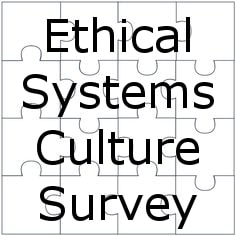
Introducing the Ethical Systems Culture Measurement Tool
Blog Ethical culture is the linchpin to running an ethical organization. Yet, while everyone agrees that culture is a vital aspect of any successful organization there is no consensus on how to analyze and measure it. At Ethical Systems, we are working with the top researchers on organizational culture and have developed assessment tools that companies can use. Our new Ethical Systems Culture Measurement site provides a suite of modules designed to measure various elements of organizational culture.
Ethical culture is the linchpin to running an ethical organization. Yet, while everyone agrees that culture is a vital aspect of any successful organization there is no consensus on how to analyze and measure it. At Ethical Systems, we are working with the top researchers on organizational culture and have developed assessment tools that companies can use. Our new Ethical Systems Culture Measurement site provides a suite of modules designed to measure various elements of organizational culture.
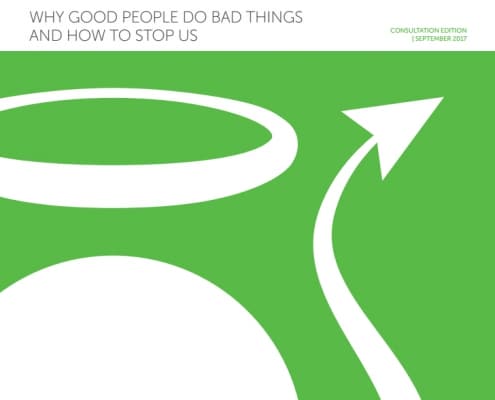
The Only Way is Ethics: A new whitepaper
Blog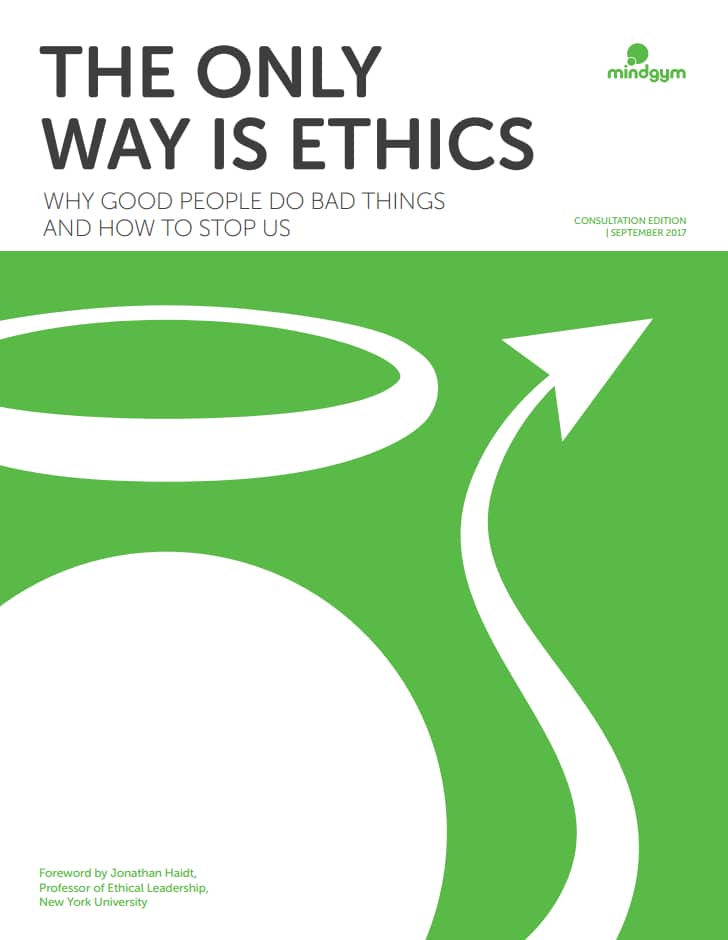 We are pleased to announce a newly-released white paper in partnership with MindGym entitled The Only Way is Ethics: Why good people do bad things and how to stop us. This resource is a free, 44-page guide which presents research on why traditional solutions to managing ethics aren’t working, while also providing a set of tools and a framework to begin diagnosing your own organization alongside concrete advice for improvement. The Only Way is Ethics includes a foreward by Ethical Systems Founder/Director Jonathan Haidt and CEO Azish Filabi.
We are pleased to announce a newly-released white paper in partnership with MindGym entitled The Only Way is Ethics: Why good people do bad things and how to stop us. This resource is a free, 44-page guide which presents research on why traditional solutions to managing ethics aren’t working, while also providing a set of tools and a framework to begin diagnosing your own organization alongside concrete advice for improvement. The Only Way is Ethics includes a foreward by Ethical Systems Founder/Director Jonathan Haidt and CEO Azish Filabi.

Azish Filabi at The Banking & Finance Ethics 2017 Conference
BlogEthical Systems CEO Azish Filabi was invited to deliver the opening remarks at The Banking & Finance Ethics 2017 conference on June 8th in Sydney, Australia. The conference covered the importance of trust and an ethical foundation for the financial services sector; exploring the crucial role individuals play in ensuring that the industry operates with integrity. We present her address below

Featured Ethics [and Transparency] Scholar for May: Alison Taylor
Blog Interview with Alison Taylor, Director of BSR’s sustainability management practice
Interview with Alison Taylor, Director of BSR’s sustainability management practice
What are your main areas of research/work?
I’ve spent most of my career working in consulting roles, helping large companies navigate integrity challenges. These are becoming ever more complex, are not confined to a single department, and require difficult judgment calls at the critical intersection of risk, responsibility, and reputation.
Currently, I work for BSR, which is a global nonprofit organization that works with its network of more than 250 member companies and other partners to build a just and sustainable world. There, I saw the sustainability field attempting to tackle some core business ethics and integrity challenges, though from a very different angle than the approach taken by risk and compliance teams. Both perspectives are essential, but too many discussions and purported solutions remain separate, in distinct silos.
I see huge potential in a more integrated approach to ethics that incorporates ideas from both compliance and sustainability. The concept of a “culture of compliance” is strangely empty. It may sound obvious to say that corporate values statements must amount to more than words on a website, but the task of giving these concepts substance can be neglected. We still hesitate to question the dominant idea that all decisions to maximize profit are ethically neutral. And we still argue that a private sector organization needs a ‘business case’ for integrity, while expecting that the individuals within that organization should behave ethically. I argue that ideas taken from corporate responsibility and sustainability can provide both the direction and the decision-making frameworks we need to use when tackling today’s challenges in business ethics.

Building Cultures of Trust at Laureate Education
Blog Ethical Systems seeks to highlight companies with a strong commitment to ethical, speak up cultures and trust. One of these companies is Laureate Education, Inc., who created a series of internal videos for their 70,000 employees about trust, blame and ethics. We present them below with an introduction by Laureate's Chief Ethics & Compliance Officer, Mark Snyderman.
Ethical Systems seeks to highlight companies with a strong commitment to ethical, speak up cultures and trust. One of these companies is Laureate Education, Inc., who created a series of internal videos for their 70,000 employees about trust, blame and ethics. We present them below with an introduction by Laureate's Chief Ethics & Compliance Officer, Mark Snyderman.
Laureate Education, Inc. is the largest global network of degree-granting higher education institutions, with more than one million students enrolled across 70 institutions in 25 countries at campuses and online. Laureate offers high-quality, undergraduate, graduate and specialized degree programs in a wide range of academic disciplines that provide attractive employment prospects. Laureate believes that when our students succeed, countries prosper and societies benefit. This belief is expressed through the company's philosophy of being 'Here for Good' and is represented by its status as a Certified B Corporation™ and conversion in 2015 to a U.S. public benefit corporation, a new class of corporation committed to creating a positive impact on society.
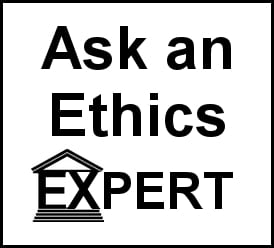
Our new ‘Ask an Ethics Expert’ Feature
Blog Expanding on our mission to curate and distil ethics research for the business community, Ethical Systems is proud to launch a new initiative soliciting questions to submit to one of our esteemed collaborators.
Expanding on our mission to curate and distil ethics research for the business community, Ethical Systems is proud to launch a new initiative soliciting questions to submit to one of our esteemed collaborators.
Our "Ask an Ethics Expert" project allows you to learn more about business ethics, culture, decision making and more. Submit your questions online and see your answers in our May newsletter and on our Ask an Ethics Expert page online.

Sharing: The Five Levels of Building an Ethical Culture
Blog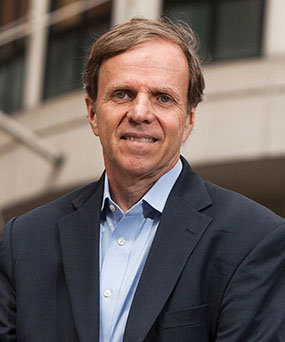
Featured Ethics [and Human Rights] Scholar for April: Mike Posner
Blog Interview with Mike Posner, Jerome Kohlberg Professor of Ethics and Finance and Director for the Center of Business and Human Rights at NYU Stern School of Business
Interview with Mike Posner, Jerome Kohlberg Professor of Ethics and Finance and Director for the Center of Business and Human Rights at NYU Stern School of Business
What are your main areas of research/work?
When we launched the Center in 2013, we sought to pioneer new ways of investigating business practices at the industry level. Our methodology prioritizes interview-based research with business leaders and other stakeholders, combined with documentary evidence, policy and data analysis, and visualization.
How does strengthening human rights help reduce ethical misconduct in companies?
To date, most approaches to address human rights or sustainability in business have focused on what happens within the four walls of the firm. They focus on the activities of individual managers to improve company practices or corporate financial contributions to improve the environment, women’s empowerment, or public health. We are very focused on how large global companies make money, their business models for doing so, and the human rights risks in their industry that accompany that model.

Featured Ethics [and Leadership] Scholar for March: Ron Carucci
Blog Interview with Ron Carucci, author, leadership consultant and cofounder / managing partner at Navalent
Interview with Ron Carucci, author, leadership consultant and cofounder / managing partner at Navalent
What are your main areas of research/work?
My colleagues and I at Navalent spend our days working with organizations pursuing dramatic change. That could be changes in strategy, re designs of organizations, or strengthening of leadership capability. Our writing and research focuses on those same areas – we see our intellectual capital as the opportunity to learn on behalf of the clients we serve.
How does strengthening leadership help reduce ethical misconduct in companies?
If you think about the nature of many ethical misconduct, they can often emanate from previously undiscovered character flaws that get exposed when leaders are pressured in broader roles. Preparing leaders early in their careers to assume increasingly bigger jobs can help reduce the likelihood that the challenges of power and resources, political rivalries, or intensified performance pressures won’t drive leaders to make short-sighted, unethical choices.

Making Business Ethics a Cumulative Science
Blog When businesses and researchers cooperate, collaborate and communicate, everyone wins. A new article in the premiere edition of Nature: Human Behavior by Ethical Systems founder Jonathan Haidt of NYU Stern and collaborator Linda Trevino of the University of Pennsylvania illustrate just how far deeper partnership can take the field of business ethics research and why that will help companies and people to flourish.
When businesses and researchers cooperate, collaborate and communicate, everyone wins. A new article in the premiere edition of Nature: Human Behavior by Ethical Systems founder Jonathan Haidt of NYU Stern and collaborator Linda Trevino of the University of Pennsylvania illustrate just how far deeper partnership can take the field of business ethics research and why that will help companies and people to flourish.
In their piece, entitled “Make Business Ethics a Cumulative Science” Haidt and Trevino outline the various factors that have impeded ties between the business and research communities. Some are due to the misalignment between operational models— academics depend on open access to information towards the goal of building on research and understanding, while businesses need to maintain tight control over information about their inner-workings and ethics— while others are based in the complexity of business ethics as a field.
